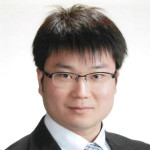Dai Sakuma
Institution: Shumei University (Assistant Professor) *¹nTokyo Science University (Part-time Researcher) *²
Country: Japan

Biography
Dai Sakuma is an assistant professor at the Faculty of Education, Shumei University (*¹), and a part-time researcher at Tokyo Science University (*²). His research focuses on educational technology, teacher education, and learning design, with a strong emphasis on integrating digital tools and innovative pedagogical frameworks into diverse educational settings. His work bridges formal and informal education, bringing expertise in curriculum development, student-centered learning, and digital literacy.
Over the years, he has actively contributed to various educational initiatives:
1. STEM and Social Education
He has extensive experience in social education and STEM outreach programs. He has designed and facilitated hands-on programming and robotics workshops using LEGO Mindstorms, aimed at fostering engineering skills among young learners, particularly for women in STEM. His outreach efforts have reached over 800 students across museums and schools in Japan.
2. School Education and Curriculum Innovation
Before transitioning to academia, he spent five years as a full-time teacher at a private secondary school, designing and delivering over 4,000 hours of lessons across social studies, technology education, and project-based learning (PBL). He introduced self-evaluation digital portfolios and rubrics to enhance students’ autonomy and critical thinking skills, embedding a culture of student-centered learning within the school.
3. Higher Education and Digital Literacy Training
He has provided training on data literacy and technology integration at multiple educational levels. At Kyorin University, he trained undergraduates in data mining and research methodologies. He has also worked with EdTech companies to train teachers and students in digital textbook utilization and learning analytics. Additionally, he has instructed graduate students at Tokyo Institute of Technology on IoT-enhanced research methodologies. His work has helped bridge the gap between technology and effective learning design for diverse learners.
4. University-Level Teacher Training and Research
Currently, at Shumei University (*¹), he teaches courses such as Educational Technology and Methods, ICT-based Teaching Materials, and Educational Media Utilization. His research contributes to teacher training programs, particularly in designing effective observation frameworks for teaching practice, instructional design models incorporating ICT, and simulation-based training for pre-service teachers. He has also developed image-based simulation tools to enhance authentic classroom experiences in teacher education.
At this international conference, he will present his latest study, "Structuring Problem Items Using ISM Method and Learning Element Tags." This research explores how Interpretive Structural Modeling (ISM) can be applied to curriculum development to enhance problem-solving skills and conceptual understanding.
Areas of expertise: Educational Technology, Teacher Education, Learning Design, Digital Literacy and Data-Driven Education
Dai Sakuma is an assistant professor at the Faculty of Education, Shumei University (*¹), and a part-time researcher at Tokyo Science University (*²). His research focuses on educational technology, teacher education, and learning design, with a strong emphasis on integrating digital tools and innovative pedagogical frameworks into diverse educational settings. His work bridges formal and informal education, bringing expertise in curriculum development, student-centered learning, and digital literacy.
Over the years, he has actively contributed to various educational initiatives:
1. STEM and Social Education
He has extensive experience in social education and STEM outreach programs. He has designed and facilitated hands-on programming and robotics workshops using LEGO Mindstorms, aimed at fostering engineering skills among young learners, particularly for women in STEM. His outreach efforts have reached over 800 students across museums and schools in Japan.
2. School Education and Curriculum Innovation
Before transitioning to academia, he spent five years as a full-time teacher at a private secondary school, designing and delivering over 4,000 hours of lessons across social studies, technology education, and project-based learning (PBL). He introduced self-evaluation digital portfolios and rubrics to enhance students’ autonomy and critical thinking skills, embedding a culture of student-centered learning within the school.
3. Higher Education and Digital Literacy Training
He has provided training on data literacy and technology integration at multiple educational levels. At Kyorin University, he trained undergraduates in data mining and research methodologies. He has also worked with EdTech companies to train teachers and students in digital textbook utilization and learning analytics. Additionally, he has instructed graduate students at Tokyo Institute of Technology on IoT-enhanced research methodologies. His work has helped bridge the gap between technology and effective learning design for diverse learners.
4. University-Level Teacher Training and Research
Currently, at Shumei University (*¹), he teaches courses such as Educational Technology and Methods, ICT-based Teaching Materials, and Educational Media Utilization. His research contributes to teacher training programs, particularly in designing effective observation frameworks for teaching practice, instructional design models incorporating ICT, and simulation-based training for pre-service teachers. He has also developed image-based simulation tools to enhance authentic classroom experiences in teacher education.
At this international conference, he will present his latest study, "Structuring Problem Items Using ISM Method and Learning Element Tags." This research explores how Interpretive Structural Modeling (ISM) can be applied to curriculum development to enhance problem-solving skills and conceptual understanding.
Areas of expertise: Educational Technology, Teacher Education, Learning Design, Digital Literacy and Data-Driven Education
 New Perspectives in Science Education
New Perspectives in Science Education


























